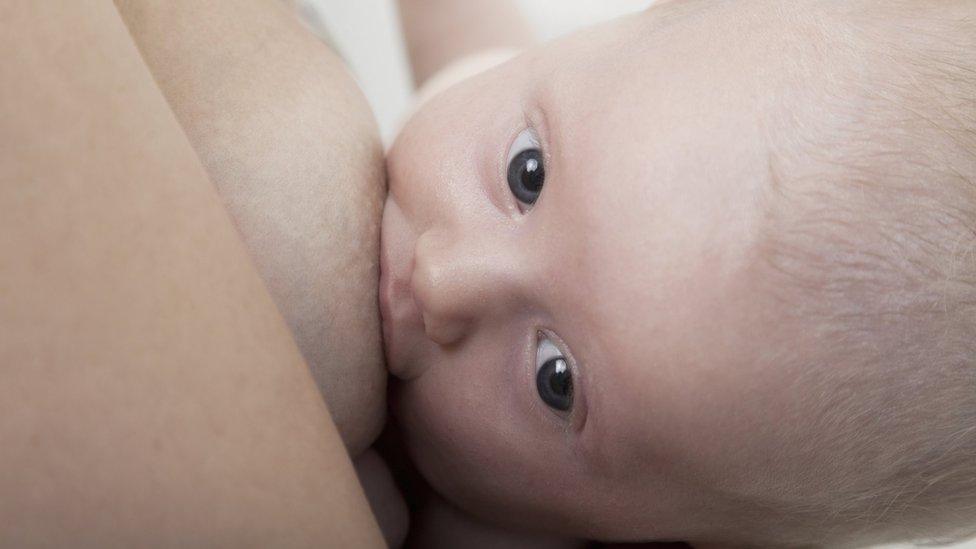UK 'world's worst' at breastfeeding
- Published

Rates of breastfeeding in the UK are the lowest in the world, an international study shows.
The data, , shows that only one in 200 women - or 0.5% - is still doing any degree of breastfeeding after a year.
That compares with 23% in Germany, 56% in Brazil and 99% in Senegal.
The researchers said it was a "widespread misconception" that breastfeeding was beneficial only in poor countries.
In the UK, 81% of mothers had tried breastfeeding at some point, but only 34% were breastfeeding at six months and 0.5% at 12 months.
In the US, 79% started, 49% were still going after six months and 27% after a year.
It is the worst record in the world. Breastfeeding is far more common in developing countries, but the UK figures are behind even similar countries in Europe.
Women in the UK are advised to feed their baby exclusively on breast milk for the first six months and then a combination of breast milk and other foods, however, it does not give a recommend end-point.
Life saver
Breastfeeding is and lowers the risk of breast and ovarian cancer.
Prof Cesar Victora, report author from the Federal University of Pelotas in Brazil, said: "There is a widespread misconception that the benefits of breastfeeding only relate to poor countries.
"Nothing could be further from the truth, our work clearly shows that breastfeeding saves lives and money in all countries, rich and poor alike."
The Lancet report said breastfeeding in developed countries reduced the risk of sudden infant deaths by more than a third.
And in poorer countries, half of cases of diarrhoea and a third of respiratory infections could be avoided by breastfeeding.
Overall, the report's authors said that near-universal breastfeeding could save over 800,000 children's lives a year.
A commentary, signed by Save the Children UK and the World Health Organization, was critical of formula milk being promoted at the expense of breastfeeding.
It said: "The active and aggressive promotion of breast milk substitutes by their manufacturers and distributors continues to be a substantial global barrier to breastfeeding.
"Promotion and marketing have turned infant formula, which should be seen as a specialised food that is vitally important for those babies who cannot be breastfed, into a normal food for any infant."
Commenting on the findings, Sarah Redshaw, from the BabyCentre website, said: "It is crucial to bear in mind the various barriers and challenges faced by mums when it comes to breastfeeding.
"Generally mums are aware that breastfeeding is best for their baby but often don't get the right support if they encounter problems in the early weeks - which many, many do.
"As a result, significant numbers give up on breastfeeding."
Follow James .
- Published5 December 2014
- Published18 March 2015